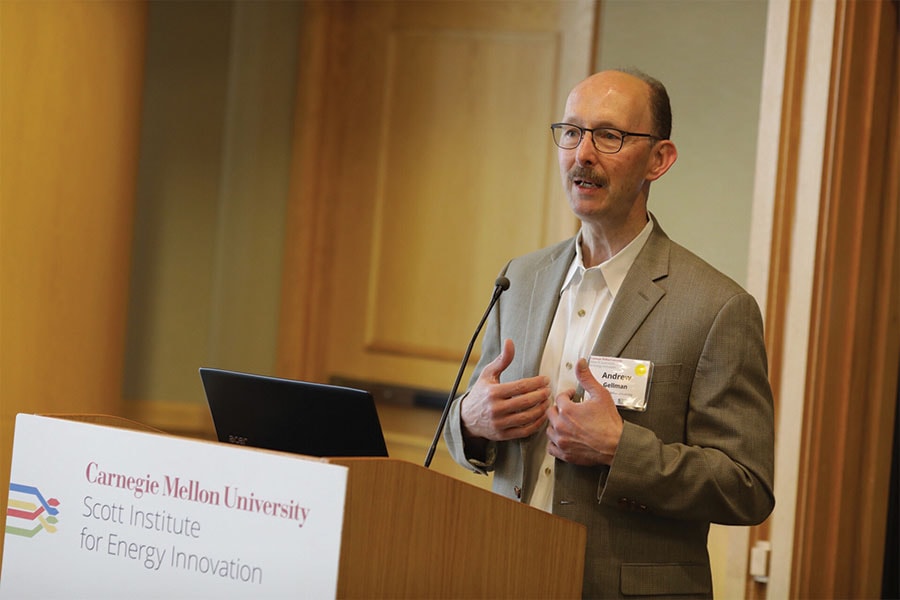
Scott Institute, DOE Hold Collaborative Subsurface Workshop
Carnegie Mellon University’s Wilton E. Scott Institute for Energy Innovation recently partnered with the U.S. Department of Energy’s National Energy Technology Laboratory for a workshop that looked beneath the Earth’s surface.
The workshop, “Real-Time Decision-Making for the Subsurface” held July 17-18, aimed to identify the technology and data needs and capabilities required to rapidly analyze subsurface data to aid in developing real-time decision-making tools. Plenary sessions and interactive breakout groups tackled a variety of timely topics, such as improving resource recovery, developing autonomous monitoring systems and managing induced seismicity. Machine learning and data analytics played a large role in the event’s discussions and will be important in the advancements to come. Carnegie Mellon and NETL will release a public report later this year detailing identified research gaps, challenges and recommendations.
Andrew Gellman, co-director of the Scott Institute for Energy Innovation and the Lord Professor of Chemical Engineering, kicked off the workshop and welcomed more than 60 participants to CMU.
Ramayya Krishnan, dean of the Heinz College of Information Systems and Public Policy and the William W. and Ruth F. Cooper Professor of Management Science and Information Systems, touched on how the Heinz College’s expertise in data analytics and CMU’s expertise in machine learning were directly in line with the workshop.
“The kind of connections without boundaries across disciplines that comes to mind with the subsurface is synergistic with the values and efforts of CMU,” Krishnan said.
Steven Winberg, assistant secretary for Fossil Energy at the Department of Energy, said marrying fossil energy with big data would greatly increase efficiency — citing academia as an important resource for moving forward.
“We want to partner with academia and industry,” Winberg said. “Breaking down silos and working collaboratively is what I’ve been tasked to do at the DOE.”